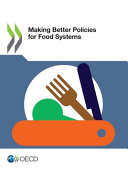

Most ebook files are in PDF format, so you can easily read them using various software such as Foxit Reader or directly on the Google Chrome browser.
Some ebook files are released by publishers in other formats such as .awz, .mobi, .epub, .fb2, etc. You may need to install specific software to read these formats on mobile/PC, such as Calibre.
Please read the tutorial at this link: https://ebookbell.com/faq
We offer FREE conversion to the popular formats you request; however, this may take some time. Therefore, right after payment, please email us, and we will try to provide the service as quickly as possible.
For some exceptional file formats or broken links (if any), please refrain from opening any disputes. Instead, email us first, and we will try to assist within a maximum of 6 hours.
EbookBell Team

4.3
8 reviewsFood systems around the world face a triple challenge: providing food security and nutrition for a growing global population; supporting livelihoods for those working along the food supply chain; and contributing to environmental sustainability. Better policies hold tremendous promise for making progress in these domains. This report focuses on three questions. What has been the performance of food systems to date, and what role did policies play? How can policy makers design coherent policies across the triple challenge? And how can policy makers deal with frictions related to facts, interests, and values, which often complicate the task of achieving better policies? Better policies will require breaking down silos between agriculture, health, and environmental policies, and overcoming knowledge gaps, resistance from interest groups, and differing values. Robust, inclusive, evidence-based processes are thus essential to making better policies for food systems.